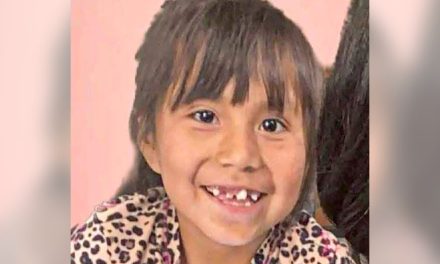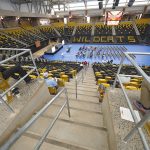
Council OK’s funding, with questions, for Colo. ranches
WINDOW ROCK
The Navajo Nation Council during the spring session approved a total of $1.9 million from the Unreserved, Undesignated Fund Balance to the Division of Natural Resources for drought impacts at the Colorado ranches.
The bill (No. 0252-21) now goes to President Jonathan Nez where he will either sign or veto.
The bill, if passed, will provide money for drought conditions at the ranches in Huerfano and Custer counties where the Boyer Ranch and the Wolf Springs Ranch are located.
Most of the budget will go towards specialized vehicles for a total of $868,000.
During day three of the spring session, debate arose among the delegates on whether the funds should be given to the Colorado ranches.
Sponsor Raymond Smith voted to approve the bill but still had concerns about ranchers on the Navajo Nation.
“If we’re going to do this funding, what about the ranchers on the Navajo Nation as well?” he said. “I mean, the drought is going to be hitting us so hard this summer and, you know, right now the wind is not stopping there’s sand that’s going over the grass.”
He recommended that the bill be tabled to add funding for Navajo ranchers.
Another concern was the amount of money. Delegate Carl Slater suggested the ranches become stand-alone enterprises so the program would not need additional financial resources from the Navajo government.
Delegate Mark Freeland is co-sponsor of the bill and encouraged his fellow delegates to support the bill because of the beauty of the ranch.
“If you have not been there and seeing it for yourself,” Freeland said. “You need to see this place, you really need to see and take it in. It’s right at the base of Sis Naajini, you walk out the front door and our east sacred mountain is right there.”
He said the ranch was purchased under the 23rd Council’s direction and he said he does not know if there was a plan to make the ranches a standalone enterprise, but it is a good idea to look into.
He also spoke about the effort to heal the land since it once was the home to 700 to 800 cattle which caused the land to be overgrazed.
“Fish and wildlife had to make changes to that and right now, because of the reduction of the herd, they’re trying to work to get the forage healed, the land healed, and vice versa with Wolf Springs,” he said.
Freeland said these ranches and the animals on them are owned by the Diné people and the Navajo Nation.
“If there’s a lot of questions or a lot of situations where our people are wanting to know more about the ranch, maybe fish and wildlife could have an open house and invite the public to see this,” he said. “They need to see this for themselves.”
Delegate Eugenia Charles-Newton requested to see the original legislation to see what the purpose of the ranch purchase was.
“If that (purchasing the ranch) was to do revenue then I feel like we are technically spinning our wheels here and it’s hard to give funding to a ranch that is off the Navajo Nation, making the argument that the purpose is to bring in revenue but we’re putting more money into it,” she said.
Slater held the same thoughts and said funding for the ranches is not a wise idea and he is afraid that approving this legislation might set precedence that every time a ranch purchase is made then the government will bail them out.
“The West is, you know, in the biggest drought in several hundred years and that’s not going to change so there’s an interesting concept buying this,” he said. “There’s a lot of cultural value and significance to it but at a certain point you got to think about what are the losses that we’re going to incur the Nation in order to make this whole.”
He said they are not maximizing the value of the ranches, and nothing has been done to it to add value.
“I don’t see how 1.9 million or 1.8 million dollars is better spent up there than it is down here on our own Navajo ranchers who are going to be struggling with the same drought,” Slater said.
“There’s nothing against the people who are managing this,” he said, “I think they’re doing an admiral job, doing everything that they can to make this a successful operation, but I haven’t had a single constituent or rancher come up to me and say this is a good idea.”
The bill was approved by Council 15-5, with delegates Slater, Charles-Newton, James, Daniel Tso, and Eugene Tso opposed.







 Highway 264,
Highway 264, I-40, WB @ Winslow
I-40, WB @ Winslow